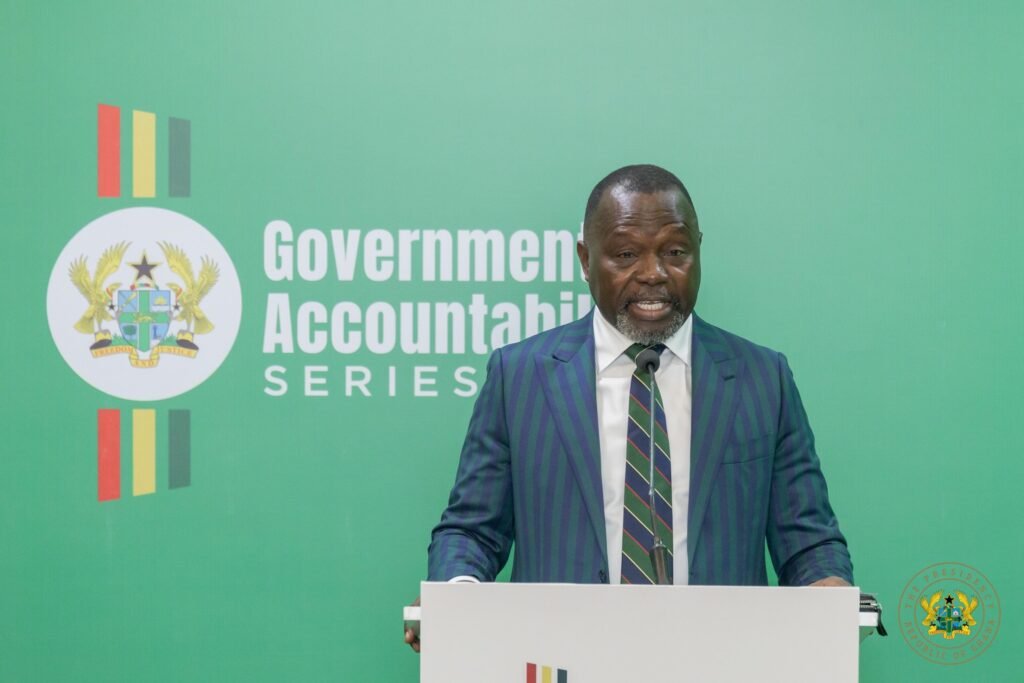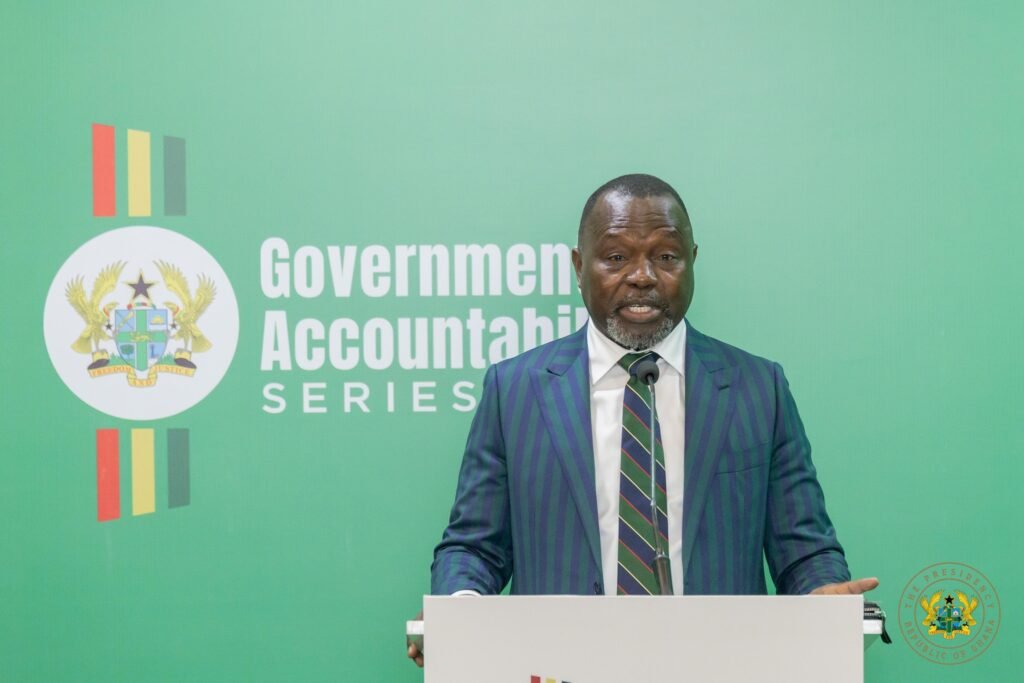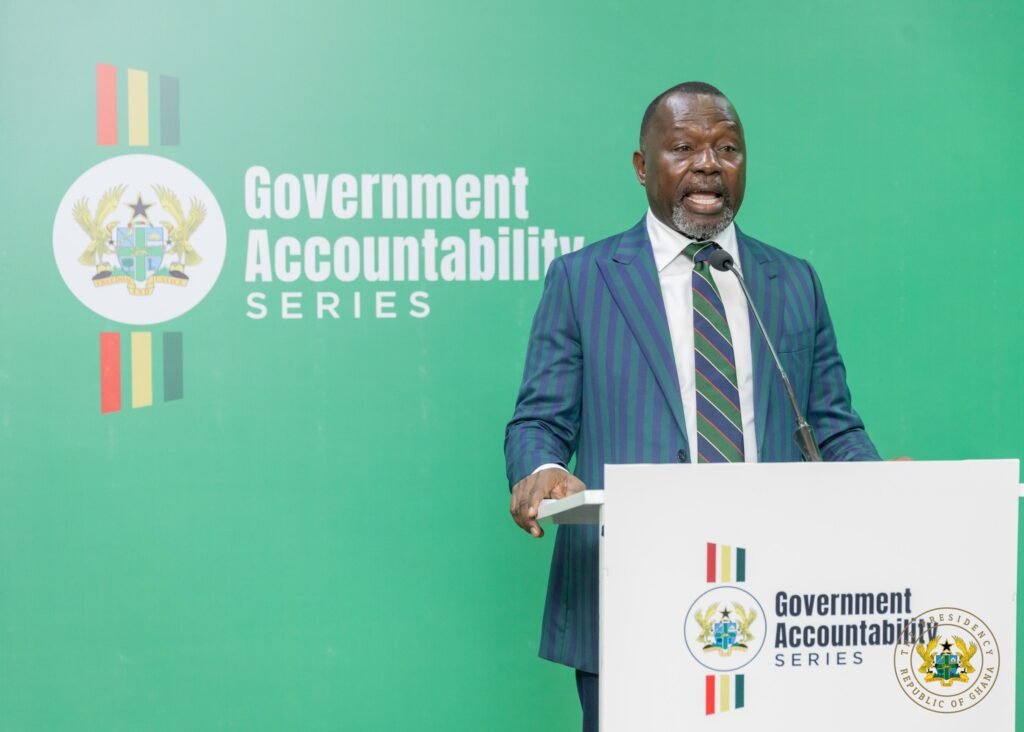Ghana is on the cusp of a major transformation in its legal education system, with Attorney General and Minister for Justice, Dr. Dominic Akuritinga Ayine, announcing that a Legal Education Reform Bill will soon be submitted to Cabinet.
The bill, he explained, seeks to expand access, promote equality of opportunity, and address long-standing bottlenecks in the training of lawyers. Speaking at a public forum in Accra, Dr. Ayine revealed that the reforms will fundamentally restructure the country’s legal education framework.
Under the new system, law graduates will undertake a one-year “law practice course” administered by accredited law faculties. This course, he explained, will concentrate exclusively on practical subjects such as civil procedure, criminal procedure, advocacy and legal ethics, and the law of evidence.
Students will then take a national bar examination administered by a new Council for Legal Education, independent of the traditional structures. “In essence, when enacted, the bill will cut down the duration of legal education from five to four years,” Dr. Ayine said.
The reform also marks the beginning of the end of the Ghana School of Law’s monopoly over professional training. While the school will be retained temporarily to cater to current students and foreign-trained lawyers seeking to join the Ghana Bar, its role will gradually transition to align with the law practice course model.

The Attorney General clarified that the current cohort will complete their training in 2027, after which the school will adopt the new curriculum to prepare students for the national bar examination.
Fears of Oversupply of Lawyers Unfounded
Addressing concerns about the potential oversupply of lawyers, Dr. Ayine was emphatic that such fears are unfounded. He recalled how, even in 1904, lawyers in the then Gold Coast complained that the Bar was overcrowded, despite there being only 11 practitioners at the time.
Citing legal scholar Robin Lockham’s 1976 article The Market for Legal Services in Ghana, Dr. Ayine noted that the debate has always been more about professional competition than societal needs.
“Understandably, as Lockham rightly observes, the question whether there is an oversupply of lawyers is raised by the profession itself. It is because of the worry that increased competition for business undermines professional standards.
“But supposing, without admitting, that the quality of legal services can be increased by erecting entry barriers such as we have now. According to Lockham, this will be achieved at a significant cost to society.”
Attorney General and Minister for Justice, Dr. Dominic Akuritinga Ayine
He elaborated that these costs would be felt in two main ways: through the reduced availability of legal services for ordinary people, and through higher costs for litigants due to the monopoly enjoyed by the profession. Dr. Ayine stressed that the law must never be the preserve of the elite.

“As Justice Samuel Kofi Date-Baah once reminded us, the ultimate justification for law lies in its service to society. If our practice does not make justice accessible to the market woman, the farmer, the laborer, and the vulnerable child, then we will have failed our sacred duty to our country.”
Attorney General and Minister for Justice, Dr. Dominic Akuritinga Ayine
The announcement marks a fulfillment of a key pledge made by the governing National Democratic Congress (NDC) in its 2024 election campaign. President John Dramani Mahama, who returned to office after the elections, had promised that his administration would end the bottlenecks created by the Ghana School of Law’s limited intake and break its decades-long monopoly.
The issue has been the subject of national debate for years, with scholars, politicians, and activists pushing for reform. Among the most vocal advocates have been Professor Stephen Kwaku Asare, a Ghanaian US-based legal scholar, and Rockson-Nelson Etse Dafeamekpor, Member of Parliament and lawyer, who have consistently criticized the exclusionary nature of the current system.
For decades, thousands of students who completed their Bachelor of Laws (LLB) programs at universities across the country have been unable to enter the legal profession due to the Ghana School of Law’s limited capacity.
The introduction of the one-year law practice course across accredited faculties, combined with the establishment of a national bar examination, is designed to open opportunities to many who have long been shut out.
No Compromise Professional Standards
Dr. Ayine acknowledged the importance of striking a balance between access and quality but insisted that the new model does not compromise professional standards.
By focusing the practice course on practical subjects and maintaining a rigorous, centralized bar examination, he argued, Ghana will train more lawyers while still safeguarding the competence and integrity of the profession.
In the recent past, public reaction to such reforms has been mixed. While many aspiring lawyers and legal education advocates have welcomed the reforms as long overdue, some members of the legal fraternity remain cautious.
Critics argue that an increase in the number of lawyers could strain the profession and lower earnings, while others fear that decentralizing training might compromise uniformity.

Nonetheless, Dr. Ayine maintained that the reforms are essential for making justice more accessible. He noted that Ghana’s current lawyer-to-population ratio remains woefully inadequate compared to international benchmarks.
With a population exceeding 30 million, Ghana has a total of 11,000 lawyers, with 8,000 practicing lawyers—a ratio that denies many citizens access to professional legal services.
The Attorney General expressed confidence that Parliament will support the reforms once the bill reaches the House. If passed, the Legal Education Reform Bill will mark one of the most significant overhauls of Ghana’s legal system in decades.
For aspiring lawyers who have long felt excluded, it offers a new pathway; for society at large, it promises to bring legal services closer to the ordinary citizen.



















